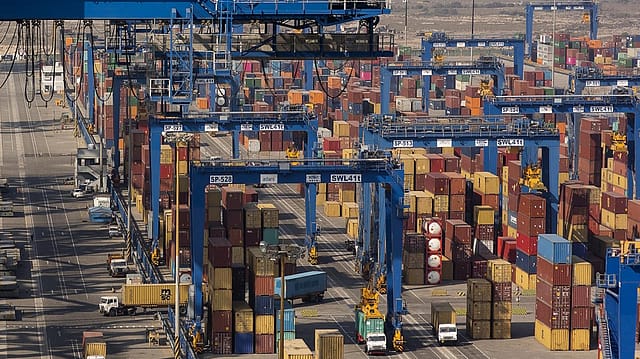Budget 2022: Govt rejigs customs duty structure to boost manufacturing
ADVERTISEMENT

The central government is planning a gradual phase out of concessional tariff rates offered for capital goods and project imports. Union Budget 2022-23 has proposed a 7.5% tariff on all such products and services.
Explaining the rationale behind the withdrawal of concessional rates, finance minister Nirmala Sitharaman said that several duty exemptions, even extending to over three decades in some cases, granted to capital goods for various sectors like power, fertiliser, textiles, leather, footwear, and food processing have hindered the growth of the domestic capital goods sector. Similarly, project import duty concessions have also deprived the local producers of a level playing field in areas like coal mining projects, power generation, transmission or distribution projects, railway and metro projects, she said. According to the minister, reasonable tariffs are conducive to the growth of domestic industry and ‘Make in India’ without significantly impacting the cost of essential imports.
The Budget 2022-23 also proposes gradual phasing out of customs exemptions on over 350 items. These include exemption on certain agricultural produce, chemicals, fabrics, medical devices and drugs and medicines for which sufficient domestic capacity exists.
However, exemptions for advanced machineries and intermediates and raw materials that are not manufactured within the country will continue. A few exemptions are being introduced on inputs, like specialised castings, ball screw and linear motion guide, to encourage domestic manufacturing of capital goods. Similarly, customs duty rates are being calibrated to provide a graded rate structure to facilitate domestic manufacturing of wearable devices, hearable devices and electronic smart meters. Duty concessions are also being given to parts of transformer of mobile phone chargers and camera lens of mobile camera module and certain other items.
To give a boost to the gems and jewellery sector, Budget 2022-23 proposes to reduce customs duty on cut and polished diamonds and gemstones to 5%. Simply sawn diamond would attract nil customs duty. On the other hand, a duty of at least ₹400 per kilo will be levied on imitation jewellery to disincentivise import of undervalued imitation jewellery.
The Budget also proposes customs duty reduction on certain critical chemicals namely methanol, acetic acid and heavy feed stocks for petroleum refining and duty hike on sodium cyanide for which adequate domestic capacity exists. Exemption is also being rationalised on implements and tools for agri-sector which are manufactured in India. Customs duty exemption given to steel scrap last year is being extended for another year to provide relief to MSME secondary steel producers. Certain anti- dumping and CVD on stainless steel and coated steel flat products, bars of alloy steel and high-speed steel are being revoked in larger public interest considering prevailing high prices of metals, the minister said her Budget speech.
To incentivise exports, the Budget proposes duty exemptions on items such as embellishment, trimming, fasteners, buttons, zipper, lining material, specified leather, furniture fittings and packaging boxes that may be needed by bonafide exporters of handicrafts, textiles and leather garments, leather footwear and other goods.
“This comprehensive review will simplify the customs rate and tariff structure particularly for sectors like chemicals, textiles and metals and minimise disputes. Removal of exemption on items which are or can be manufactured in India and providing concessional duties on raw material that go into manufacturing of intermediate products will go many a step forward in achieving our objective of ‘Make in India’ and ‘Atmanirbhar Bharat," the minister said.